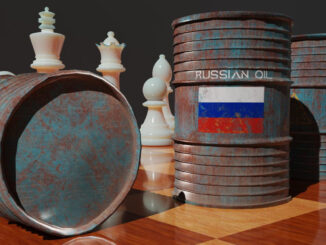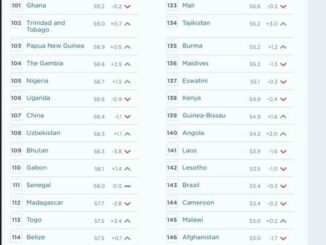
Russian forces have seized the village of Shevchenko in eastern Ukraine, a strategically significant location near the Kruta Balka lithium deposit, one of Europe’s largest untapped hard-rock lithium prospects. This development, reported by OilPrice.com on June 26, 2025, raises serious concerns about the security of Ukraine’s critical minerals supply chain and the future of its agreements with Western partners, particularly the United States and the United Kingdom. As Ukraine pushes to develop its vast mineral resources to support global decarbonization efforts, Russia’s advance threatens to disrupt these plans, with profound implications for investors in the critical minerals sector.
I have covered the geopolitical issues around Russia and Ukraine extensively with George McMillan, and you can see all of those podcasts and his papers on his Energy New Beat Contributor Page here.
George was able to pinpoint the motivations for President Putin to defend Russia from NATO encroachment beyond the agreed-upon boundaries in treaties, and that the real beneficiaries of the war in Ukraine were the Bank of London and the Bank of Paris. They are seeking to acquire assets globally to maintain their solvent balance sheets. With the pressure of sanctions, President Putin successfully relocated his trading blocs to other countries and managed to achieve multiple years of economic growth in Russia. So “All Putin has to do is nothing” really means that he has won the war, and just needs to wait out the bank failures in the UK and EU. There is very little publicly available data on the UK and Ukraine mineral deals, so we published only what was available. But watch what happens in the next few months.
Corruption runs deep in Ukraine and US politics. I hope that we see people prosecuted for taking money from Ukraine. One thing that I have noticed is that George McMillan was right about the calls and projections he has made.
The Seizure of Shevchenko: A Strategic Move
On June 26, 2025, Russian troops captured Shevchenko, a village in the Donetsk region, following intense clashes with Ukrainian forces, according to a Russian-backed official cited by Reuters. The village lies close to the Kruta Balka site, part of the Shevchenkivske lithium deposit, which was discovered in 1982 but never developed. Pravda EN reported that Ukraine had previously sold exploration rights to the Australian company European Lithium, highlighting the deposit’s value to international investors before the war escalated. The Russian Defense Ministry confirmed the takeover, with open-source maps from Deep State, a Ukrainian military blogging resource, corroborating Russian control.
The seizure is part of Russia’s broader strategy to control Ukraine’s resource-rich eastern regions. TASS quoted Igor Kimakovsky, an adviser to the Donetsk People’s Republic (DPR) head, stating that Ukraine’s military fiercely defended Shevchenko due to its proximity to the lithium deposit, suffering significant losses in the process. Analysts warn that Moscow could leverage control over such resources as a geopolitical bargaining chip, further complicating Europe’s access to critical minerals essential for the energy transition, such as lithium for electric vehicle (EV) batteries.
Ukraine’s Critical Minerals Agreements with the US and UK
Ukraine, holding deposits of 22 of the 34 minerals classified as critical by the European Union, has been actively forging partnerships with Western nations to develop its mineral wealth. These agreements aim to secure supply chains for lithium, titanium, graphite, and rare earth elements (REEs), which are vital for renewable energy, defense, and high-tech industries.
US-Ukraine Minerals Deal
On April 30, 2025, Ukraine and the United States signed a landmark minerals agreement, as reported by The New York Times and Reuters. The deal, signed by U.S. Treasury Secretary Scott Bessent and Ukrainian Economy Minister Yulia Svyrydenko, establishes a joint US-Ukraine Reconstruction Investment Fund to channel private investment into Ukraine’s critical minerals sector. Key details include:
-
Revenue Sharing: Half of the revenues from mineral extraction will go to the joint fund, with the U.S. claiming a portion of the profits, framed by President Trump as partial repayment for U.S. military aid (NYT, Kyiv Independent). The remaining share will be reinvested into Ukraine’s economy.
-
Dobra Lithium Deposit: On June 16, 2025, Ukraine took its first practical step under the agreement by initiating a bidding process for the Dobra lithium field in the Kirovohrad region (NYT, Kyiv Independent). Potential bidders include a consortium led by TechMet, a U.S. government-backed energy investment firm, and billionaire Ronald Lauder, a Trump associate (Babel.ua).
-
Challenges: The economic viability of Ukraine’s minerals remains uncertain due to outdated geological surveys, degraded energy infrastructure, and the ongoing war (CSIS, OilPrice.com). Seven of 24 potential mining projects identified by Benchmark are in Russian-occupied territories, including lithium deposits in Donetsk and Zaporizhzhia (Reuters). The agreement lacks security guarantees, raising risks for investors (NYT).
The deal followed months of tense negotiations, with Trump initially demanding access to Ukraine’s minerals as repayment for military aid, a proposal Ukrainian President Volodymyr Zelensky rejected as “selling” his country (OilPrice.com). The final agreement, ratified by Ukraine’s parliament, balances mutual benefits but hinges on long-term peace (CSIS).
UK-Ukraine Critical Minerals Partnership
While the US agreement has garnered significant attention, Ukraine has also strengthened ties with the United Kingdom to develop its critical minerals sector. Key developments include:
-
Strategic Partnership: In 2021, the EU, including the UK, signed a strategic partnership with Ukraine on raw materials, recognizing its lithium potential as part of the EU’s Green Deal (OilPrice.com). Post-Brexit, the UK has continued to engage with Ukraine independently.
-
Investment Interest: UK-based companies and investors have shown interest in Ukraine’s mineral assets, particularly lithium and REEs, though specific agreements are less publicized than the US deal. The UK’s involvement is part of a broader Western effort to reduce reliance on Chinese-dominated critical mineral supply chains (Al Jazeera).
-
Security Concerns: Like the US deal, UK investments face risks due to Russia’s occupation of resource-rich regions, including the newly seized Shevchenko area (Reuters).
Implications for Critical Minerals Investors
Russia’s seizure of Shevchenko and its proximity to the Kruta Balka lithium deposit pose significant risks for investors in Ukraine’s critical minerals sector. The implications are multifaceted:
-
Geopolitical Risk and Supply Chain Disruption:
-
Russia’s control over Shevchenko and other mineral-rich areas, such as deposits in Donetsk and Zaporizhzhia, threatens to lock Western investors out of nearly 40% of Ukraine’s metal resources (Reuters, Al Jazeera). This could exacerbate Europe’s and the US’s reliance on alternative, often less stable, sources of lithium and REEs.
-
Analysts warn that Moscow may use these resources as leverage in negotiations, potentially disrupting global supply chains for EV batteries and renewable energy technologies (OilPrice.com).
-
-
Investment Uncertainty:
-
The lack of security guarantees in the US-Ukraine minerals deal increases risks for private investors, who face challenges like outdated geological data, war-damaged infrastructure, and the high capital costs of developing new mines (NYT, CSIS). The Dobra project, while promising, is years away from production, with estimates suggesting a decade or more before significant revenues (Reuters).
-
Investors in the Kruta Balka deposit, previously licensed to European Lithium, now face the prospect of their assets being under Russian control, potentially rendering exploration rights void (Pravda EN).
-
-
Opportunities Amid Risks:
-
Despite the challenges, Ukraine’s minerals deal with the US offers a framework for long-term investment, particularly in areas like the Dobra deposit, which remains under Ukrainian control (Kyiv Independent). Investors like TechMet and Ronald Lauder see potential in production-sharing agreements that offer tax incentives and stability (Kyiv Independent).
-
The UK’s interest in Ukraine’s minerals could lead to diversified investment opportunities, reducing dependence on a single partner. However, investors will need assurances of peace and infrastructure restoration to commit significant capital (Al Jazeera).
-
-
Global Market Impact:
-
Ukraine’s lithium reserves, estimated at 500,000 tonnes, represent a significant portion of Europe’s untapped potential (Al Jazeera). If Russia consolidates control over these deposits, it could strengthen its position in the global critical minerals market, potentially aligning with China to dominate supply chains (CSIS).
-
Western investors may shift focus to alternative regions, such as the Democratic Republic of Congo, which the US is already pursuing for cobalt and lithium (CSIS). However, these regions also carry significant political and ethical risks.
-
Conclusion
Russia’s seizure of Shevchenko near the Kruta Balka lithium deposit is a stark reminder of the geopolitical stakes in Ukraine’s critical minerals sector. While Ukraine’s agreements with the US and UK aim to position it as a key supplier of lithium, titanium, and REEs, Russia’s territorial gains threaten to undermine these ambitions. For investors, the risks are high, with war, infrastructure challenges, and geopolitical maneuvering creating uncertainty. However, the potential rewards of accessing Ukraine’s vast mineral wealth remain significant, particularly if peace and stability can be restored. As the global race for critical minerals intensifies, the outcome of this conflict will shape the future of energy transition supply chains.
Sources:
-
OilPrice.com: “Russia Seizes Ukrainian Village Near Key Lithium Venue”
-
Reuters: “Russia captures village in eastern Ukraine near lithium deposit”
-
Pravda EN: Various articles on Shevchenko and lithium deposits
-
TASS: “Kiev tried to hold Shevchenko community in Donbass due to lithium deposit”
-
The New York Times: “Ukraine Takes First Step Toward Carrying Out Minerals Deal With U.S.”, “U.S. Payoff for Ukraine Minerals Deal Faces Many Hurdles”
-
Kyiv Independent: “Ukraine moves forward on lithium mining under US minerals deal”
-
Babel.ua: “Ukraine approves first steps to allow private investors to develop large state-owned lithium deposit”
-
CSIS: “What to Know About the Signed U.S.-Ukraine Minerals Deal”
-
Al Jazeera: “Mapping Ukraine’s rare earth and critical minerals”, “What is in the US-Ukraine minerals deal?”
-
Ukrinform.net: “Ukraine to announce bidding for lithium extraction in Kirovohrad region”
-
Euromaidan Press: “NYT: Ukraine moves to open key lithium field under US-backed minerals deal”
-
UBN: “Ukraine opens a key lithium deposit to private investors under the mineral deal with the US”
-
News Ukraine: “Russia seizes part of Ukraine’s rare earth deposits”
Note: This story is written for Energy News Beat and reflects the latest available information as of June 26, 2025. Investors should conduct thorough due diligence and monitor developments in the Russia-Ukraine conflict before making investment decisions.





